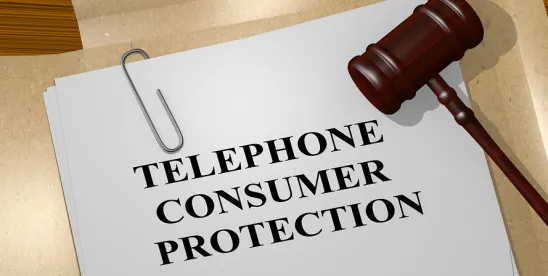As I have reported over the last few days, the calamity of inconsistent ATDS decisions has officially reached fever pitch. Courts are now reaching inconsistent decisions on the application of the TCPA multiple times in a single day. And as I opined yesterday, the application of such an ambiguous statute in an ad hoc manner that chills speech is deeply inconsistent with constitutional principles.
Nonetheless, on Friday of last week—just a business day before three different courts would apply three different ATDS formulations to text message platforms— a Court in Maryland found the TCPA was not vague as applied to—wait for it—a text message platform. In Wilson v. PH Phase One Operations L.P., Civil Action No. DKC 18-3285, 2019 U.S. Dist. LEXIS 166732 (D. Md. Sept. 27, 2019) the Court rejected both a First Amendment challenge and a void for vagueness challenge to the TCPA, facially and as applied.
The result of the First Amendment challenge—although the wrong one—was not particularly surprising as the Court’s hand was forced by AAPC, where the Fourth Circuit held that the TCPA is unconstitutional under First Amendment principles but severed one of several content-specific exemptions in a bid to convert the statute to a content-neutral time place manner restriction, purportedly saving it. While AAPC applied both the wrong analysis and offered the wrong remedy, the Wilson court was obviously bound by it.
The void for vagueness challenge analysis is far more interesting but, in the most delicious of ironies, the Court’s analysis is, itself, quite vague. The Court seems to imply that the TCPA cannot possibly be vague because it existed for ten years without any FCC rulings to serve as guideposts on the scope of the statute. While the premise is true—the FCC did not interpret the TCPA to expand what was an ATDS until 2003—the conclusion is a non sequiter. The TCPA was not vague until the FCC interpreted the statute to expand what was an ATDS—until then every Court agreed that the statute meant what it said; i.e. it only covers dialers that call randomly or sequentially. Indeed it took another 8 years—to 2011—before Courts actually began applying the FCC’s 2003 order and that, of course, was the watershed moment when the statute became impossible to apply.
From 2011 on, of course, things only get murkier with the FCC interpreting the statute to expand the definition further in 2015—seemingly in retroactive fashion—then the D.C. Circuit Court of Appeal set aside that ruling—again with retroactive impact– but some courts still applied the 2003 ruling—and some still do so, in part, to this very day–then the Ninth Circuit expanded the statute again in Marks—which some courts follow and some courts do not. In other words, even if the statute was not vague for 20 years it certainly is today. The Court’s review of simpler times, therefore, does not really yield much impact in today’s environment of uncertainty. Nonetheless, the Court overruled the vagueness challenge on essentially this analysis.
Defendant also posed an as applied challenge which the Court gave unfortunately short shrift. Essentially the court punted on the issue and determined that the allegations of the complaint—this was a pleadings challenge—demonstrate that Defendant used a system with the capacity to dial randomly or sequentially and that’s exactly what the statute says. So deeming a statute void for vagueness when it is being applied to the very technology the statute covers is not appropriate. Here Wilson gets it right, sort of. The thrust of Defendant’s point was that human intervention was needed to send the messages at issue. The Wilson court does not really take that issue up-finding the analysis unpersuasive in light of the allegations of the complaint— but that is forgivable since evidence of the device’s functionality was not properly before the court at the pleadings stage.
While the results on the constitutional analysis were poor for Defendants, Wilson is not all bad. Importantly the Court concluded that there is no private right of action for violations of CFR 64.1200(d)—including requirement to maintain internal DNC policies—and dismissed those claims. Suing under these regulations has become a new TCPA class action trend so keep Wilson in mind for those cases.




 />i
/>i
